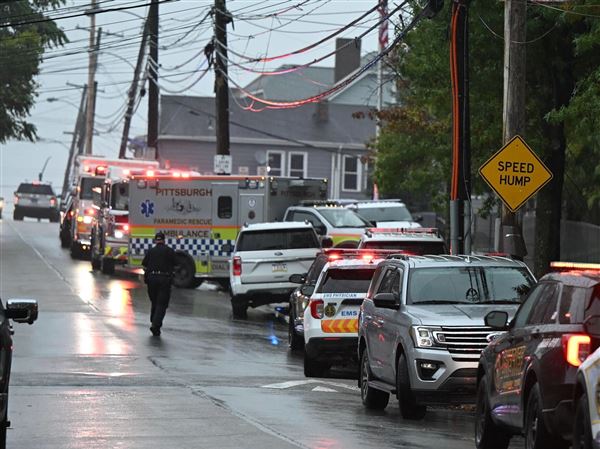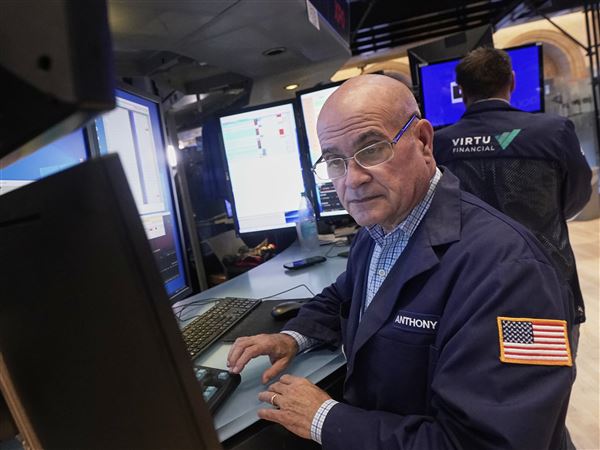FBI Agent Jesse Coleman lived in two worlds, each secret and distant from the other.
One was his high-risk, high-rewards job. An African-American agent with exceptional undercover skills, he infiltrated the Sicilian mob and dented its drug-dealing operations. He was equally good at gathering intelligence in hostile urban neighborhoods, a talent that helped him make cases against the brash crack dealers of Philadelphia.
"Jesse was a complete agent, the best person I ever worked with," said former Pennsylvania statepoliceman Tom Ansel, himself a storied investigator of Philadelphia's cocaine dealers.
Mr. Coleman, raised in McKeesport, also found a satisfying personal life in Philadelphia. He married a woman from a Catholic family of 13 children. His wife, Patricia, worked in the computer business and knew almost nothing about the FBI or his daring investigations.
All that changed when Mr. Coleman, state police and Philadelphia homicide detectives began a relentless pursuit of the Junior Black Mafia, the city's most violent drug gang of the 1980s and early '90s.
As Mr. Coleman dug into the gang's power structure, he came to a horrifying, though not altogether surprising, discovery: The co-founder and leader of the Junior Black Mafia was a young man named Aaron "AJ" Jones -- younger brother of Mr. Coleman's wife.
Mr. Coleman knew if he brought down his brother-in-law it might also destroy his marriage. That is precisely what happened, at least for a time.
Mr. Coleman stuck with the case, despite his fears. Aaron Jones ended up on Pennsylvania's Death Row, where he remains today, 15 years after his conviction for ordering the execution of a rival gangster.
Family life was never easy for Jesse or Patricia Coleman after Mr. Jones' arrest and conviction. Their marriage began cracking under the strain of a case that, for them, never ended.
Jesse would drive Patricia more than 300 miles across the state so she could visit her brother in the state prison in Waynesburg, Greene County. He would sit in the car the whole time or maybe get a hotel room. The FBI agent and the gang leader he put in prison had nothing to say to each other.
In 1996, after 10 years of marriage, Patricia Coleman decided she'd had enough. She divorced Jesse and moved to the West Coast for what she hoped would be a fresh start.
"I just want a normal life," she told him.
Mr. Coleman said the stress became unbearable for her because her brother faced the ultimate punishment.
"If Aaron had gotten life in prison it might not have been as bad," he said. "His death sentence probably broke up our marriage."
After the divorce, Jesse Coleman found that Hollywood was interested in his story. He signed a movie deal with MGM, but the project stalled.
One issue was whether the focus of the movie should be the straight-arrow agent or the ruthless gang leader. Eventually, the studio bowed out and Patriot Pictures bought the rights to Mr. Coleman's story.
The movie project remains alive, though Mr. Coleman said he has his doubts about whether it will ever be made. If it happens, the Colemans have given Patriot Pictures a happier ending to work with.
In 2004, eight years after their divorce, Jesse and Patricia Coleman remarried.
They had remained friendly and emotionally dependent on one another. Patricia Coleman decided she still wanted to be with the hard-charging agent who helped send her brother to Death Row.
"We talk every day. We're crazy not to be married," she told him when she broached a reconciliation.
It was the opening he had hoped for.
They live in Maryland now. He is 55 and retired from the FBI. She does not like to talk about the past and all the pain. But the movie deal intrigues her, too.
"Sometimes she'll say, 'I wonder who will play me?' " Mr. Coleman said.
Halle Berry, among others, has been mentioned for the role.
Ed Mattioni, a producer and screenwriter who has co-written the latest script, says he is confident the Jesse Coleman story will be made in two forms -- a fictionalized feature film and a documentary, perhaps for television.
"It's a tale of heroism that you don't hear in our world anymore," Mr. Mattioni said.
Growing up in McKeesport, Mr. Coleman did not set out to be a lawman. After graduating from high school in 1970, he took jobs in steel mills to work his way through what is now Clarion University of Pennsylvania.
With a business degree in hand, he became a foreman at a steel mill in Eastern Pennsylvania. The money was good, but he hated the work.
His father was the first black firefighter in McKeesport, so Mr. Coleman began thinking about government service as an alternative to the mill.
He applied at the FBI field office in Philadelphia. Initially too young to become an agent -- the minimum age was 23 -- he accepted a job as a clerk.
Mr. Coleman became an agent in 1979. Even as a rookie, his tenacity was apparent. He would listen to wiretaps when no one else could. He learned how to sort through all the verbiage and coded language to find the important information.
He also had a knack for getting people to talk and for gaining the trust of FBI targets. These skills made him a natural for undercover work.
By the late 1980s, he was posing as a Philadelphia drug dealer and working his way into the circles of organized crime families in New York. About this time, he also began paying careful attention to Aaron Jones.
College-educated and raised in a church-going family, Mr. Jones did not fit the profile of a drug lord and killer. He made a good first impression, but it did not take long before his new brother-in-law saw his audacious side.
Mr. Coleman says it was Christmas, the holiday that brought his wife's enormous family together. Children were dashing all around, so Mr. Coleman slipped into a bedroom, emptied his handgun and hid it under a mattress.
Simultaneously, Mr. Jones, who also was carrying a pistol, did the same. It did not seem to bother the young street tough that he was showing off his weaponry in front of an FBI agent.
Mr. Coleman said he knew Mr. Jones was living dangerously, but he did not immediately realize the depth of his brother-in-law's lawbreaking.
Then, while wiretapping a West Coast cocaine supplier to Philadelphia, he began accumulating evidence that Mr. Jones was running the Junior Black Mafia.
Mr. Coleman said he wanted to stop a gang that was victimizing people and selling poison on the streets. At the same time, he knew his home life would be infinitely more difficult if he continued investigating his wife's brother.
"I felt trapped," Mr. Coleman says now. "But I decided it would look funny if I got off the case."
Mr. Ansel, then a state trooper who was part of the task force pursuing the Junior Black Mafia, remembers the anguish.
"I told Jesse, 'If you want off this detail, I will totally understand.' But I didn't want him to go. He was invaluable."
Federal charges were brought against Mr. Jones and 25 other members of the gang in October 1991. All were convicted, and all but one of the convictions held up on appeal.
The last big case was Mr. Jones' murder trial in state court in 1993. Jurors convicted him of ordering the execution of Bruce Kennedy, who had been Mr. Jones' rival both in drug dealing and for the affections of a woman.
In the penalty phase of the trial, Patricia Coleman was among those who asked the jurors to spare her brother's life. Mr. Ansel testified for the state so Jesse Coleman would not have to detail the "aggravating circumstance" that justified a death sentence for his brother-in-law.
"Tom Ansel's the one that saved me on that," Mr. Coleman said.
Mr. Ansel said he had no recollection of testifying in place of Mr. Coleman. For him, the conviction and death sentence of Aaron Jones were mere moments in a long career, not a personal matter. Mr. Jones is now 46 years old and continues to appeal his case.
So why, given all the pain, has Mr. Coleman signed to make a movie about his life?
"I'm human, so I'm interested. I'm also conflicted about it," he said.
His relatives in McKeesport know about his movie deal. Some days, he says, he can be as excited as they are. Other times, he could not care less about his life's story being made into a movie.
"I'm happy now," he says. "If the movie is made, I could finish my basement. But then I wonder how a movie would affect everything."
He has his good name and he got back the woman he loves. He figures he does not need much more in this life.
First Published: March 2, 2008, 5:00 a.m.
















